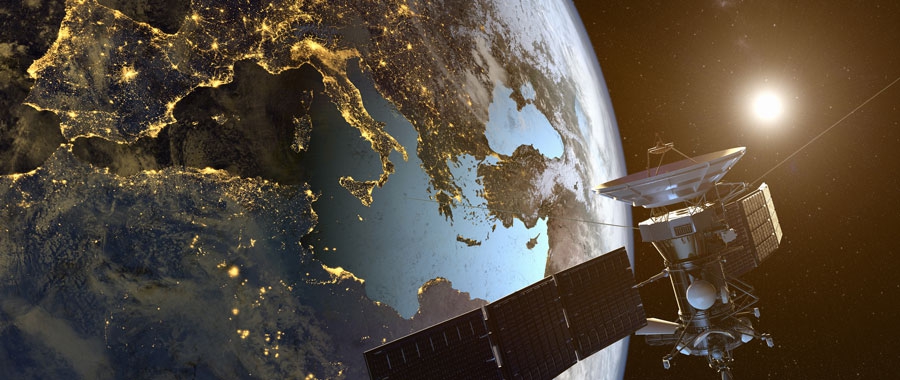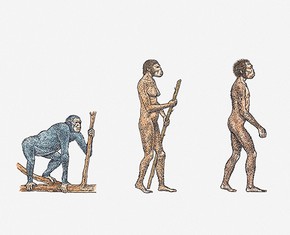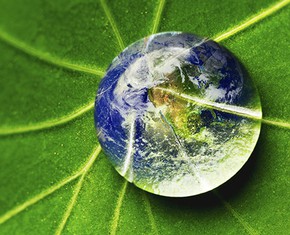The views expressed in our content reflect individual perspectives and do not represent the authoritative views of the Baha'i Faith.
Yesterday, on November 10th, World Science Day celebrated science as a resource for everybody, not just the fortunate few in advanced industrialized societies.
“The astonishing progress made by science in recent decades,” writes Audrey Azoulay, Director-General of UNESCO, “has changed our lives.”
However, she adds, “… because science today is the beneficiary of the human intellect which has been seeking, exploring and inventing for centuries, and millennia, it belongs to all humankind, it is a common good whose fruits must be of benefit to all.”
The Baha’i teachings equally emphasize the importance of science, seeing it as the foundation of human development:
Science may be likened to a mirror wherein the infinite forms and images of existing things are revealed and reflected. It is the very foundation of all individual and national development. Without this basis of investigation, development is impossible. Therefore seek with diligent endeavour the knowledge and attainment of all that lies within the power of this wonderful bestowal. – Abdu’l-Baha, The Promulgation of Universal Peace, p. 50.
The Baha’i writings, in addition, emphasize two factors that have important roles to play in making the benefits of science universally available to all. One factor – religion – often gets left out of the picture in light of both the undoubted importance of science and because of the continuing influence of a legacy of Western modernization known as the secularization thesis. This thesis holds that religion should be confined to the private sphere only, and that religious worldviews have declining applicability to public affairs.
According to the Baha’i writings, religion can bring to bear important contributions that help convey the benefits of science. Abdu’l-Baha, speaking in Paris before the first World War, portrayed science and religion as two wings of one bird:
Religion and science are the two wings upon which man’s intelligence can soar into the heights, with which the human soul can progress. It is not possible to fly with one wing alone!
Should a man try to fly with the wing of religion alone he would quickly fall into the quagmire of superstition, whilst on the other hand, with the wing of science alone he would also make no progress, but fall into the despairing slough of materialism. – Abduʼl-Baha, Paris Talks, p. 143.
Science brings humanity greater benefits if harnessed to moral and spiritual development and a recognition of the importance of religion. Lacking that recognition, the elevation of science can lead to one-sided materialism.
Another implication has to do with the means needed to share the benefits of science. One way, of course, is to share – or, as is often the case – to sell the technologies that science enables. For example, communication technologies, including telephones, radio, television, and the internet, can have inestimable value in maintaining family ties, conducting business, furthering education, and providing access to medical and market information for communities across the world.
Although important, sharing or selling these technologies only partially spreads the benefits of science: the commercialized results are shared, but not the means by which those results are obtained and developed. Proprietary technologies, often utilized to maximize profits, deliver little benefit for those whose economic circumstances prohibit their use.
The fullest way to share the fruits and benefits of science is to share the ability to conduct science, the ability to produce technologies, and the help to develop the resources – individual, institutional, and societal – that enable individuals and communities to successfully reap the benefits of science. The Baha’i teachings say that voluntary sharing can free us from the oppression of the extremes of wealth and poverty:
To state the matter briefly, the teachings of Baha’u’llah advocate voluntary sharing, and this is a greater thing than the equalization of wealth. For equalization must be imposed from without, while sharing is a matter of free choice.
Man reacheth perfection through good deeds, voluntarily performed, not through good deeds the doing of which was forced upon him. And sharing is a personally chosen righteous act: that is, the rich should extend assistance to the poor, they should expend their substance for the poor, but of their own free will, and not because the poor have gained this end by force. For the harvest of force is turmoil and the ruin of the social order. On the other hand voluntary sharing, the freely-chosen expending of one’s substance, leadeth to society’s comfort and peace. It lighteth up the world; it bestoweth honour upon humankind. – Abdu’l-Baha, Selections from the Writings of Abdu’l-Baha, p. 115
















Comments
Sign in or create an account
Continue with Googleor